Supporting food system resilience for thriving communities - We Effect
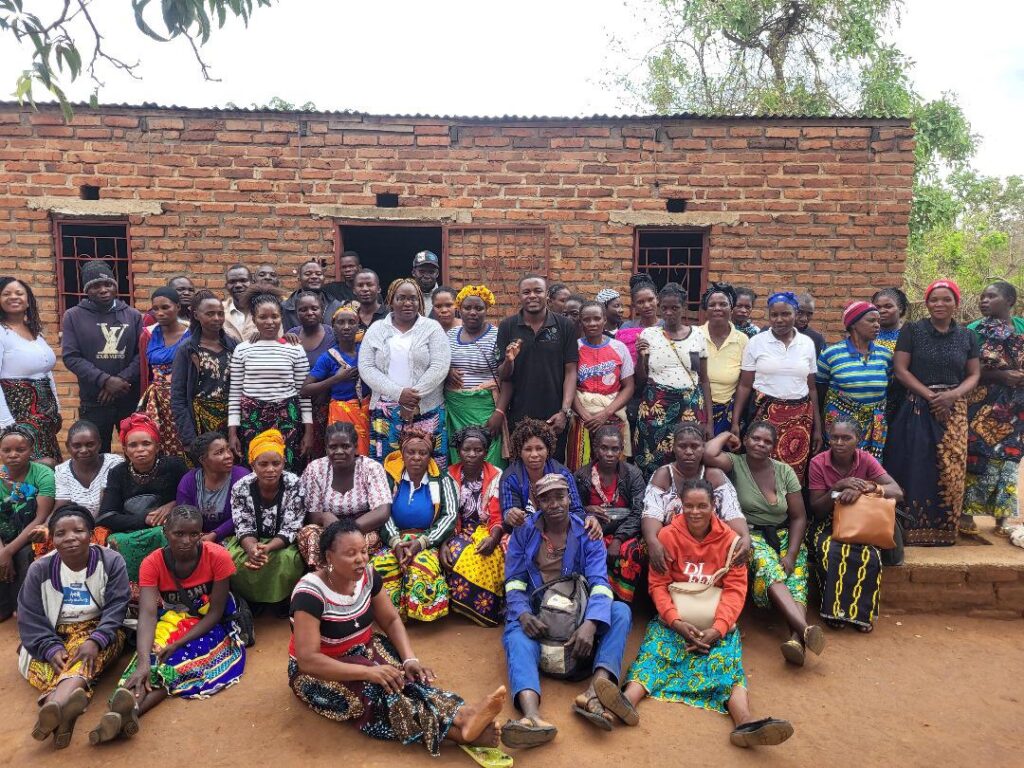
The Centre for Environment Justice (CEJ), in collaboration with the Zambia Climate Change Network (ZCCN) and with support from We Effect, is implementing comprehensive agricultural support in Kamono Camp. Under this support, CEJ is working with fifty (50) farmers (30 female and 20 male) at Kamono Camp in Nyimba District, and fifty farmers (50) farmers (38 female and 12 male) at Kasusu Camp, Petauke District in eastern province.
Key interventions include:
- Agroecology Training: Farmers were trained in sustainable agriculture practices, including composting, intercropping, crop rotation, soil and water conservation, organic pest management and the importance of local seed varieties in sustainable agriculture. These practices have promoted healthier soils and improved yields.
- Post-Harvest Handling: Farmers were trained in effective techniques to reduce both pre- and post-harvest losses. This resulted in the construction of improved, locally built grain storage facilities and the widespread adoption of agricultural practices that minimize losses throughout the crop production cycle. The training also enhanced farmers’ capacity to produce high-quality crops and equipped them with knowledge on the optimal timing for marketing and selling their produce to maximize income.
- Establishment of Demonstration Plots: With knowledge from the trainings, farmers established agroecology demo plots showcasing climate-resilient crops and soil-friendly practices. These plots are now learning centres for the community.
- Food Security Support:
- CEJ distributed 60 local and hybrid goats across both Kamono and Kasusu camps, providing households with meat, milk, income opportunities, and manure for farming. These goats will also act as breeding stock to ensure all the 100 project beneficiaries have access to goats which will promote sustainable alternative livelihood support.
- Additionally, CEJ provided diverse local seed varieties that are well-adapted to the local climate. These seeds are more resilient to climate variability, promote nutrition and form the backbone of the demonstration plots and household farms. These included:
- Gankata and Kapya Bwangu maize
- Sorghum
- Millet
- Pigeon peas
- Cowpeas
- Sunflower
- Soya beans
Community Impact and Benefit:
- Improved Food Security: Enhanced farming techniques and the availability of seeds and livestock have boosted household food production and dietary diversity.
- Resilient Livelihoods: Goat rearing and local seed varieties are enhancing household resilience against climate stressors.
- Knowledge Sharing: The demo plots have created peer-to-peer learning spaces, increasing the scale of adoption in the wider community.
- Increased Household Production: Households are seeing better yields and food availability due to improved practices and access to diversified seeds.
- Stronger Gender Inclusion: Women who make up the majority of the beneficiaries are actively involved in decision-making and leading demo plot initiatives.
- Sustainable Practices Taking Root: The integration of livestock and agroecology is restoring soil health and making farming more profitable and climate-resilient.
Community support at Kamono Camp, Nyimba District
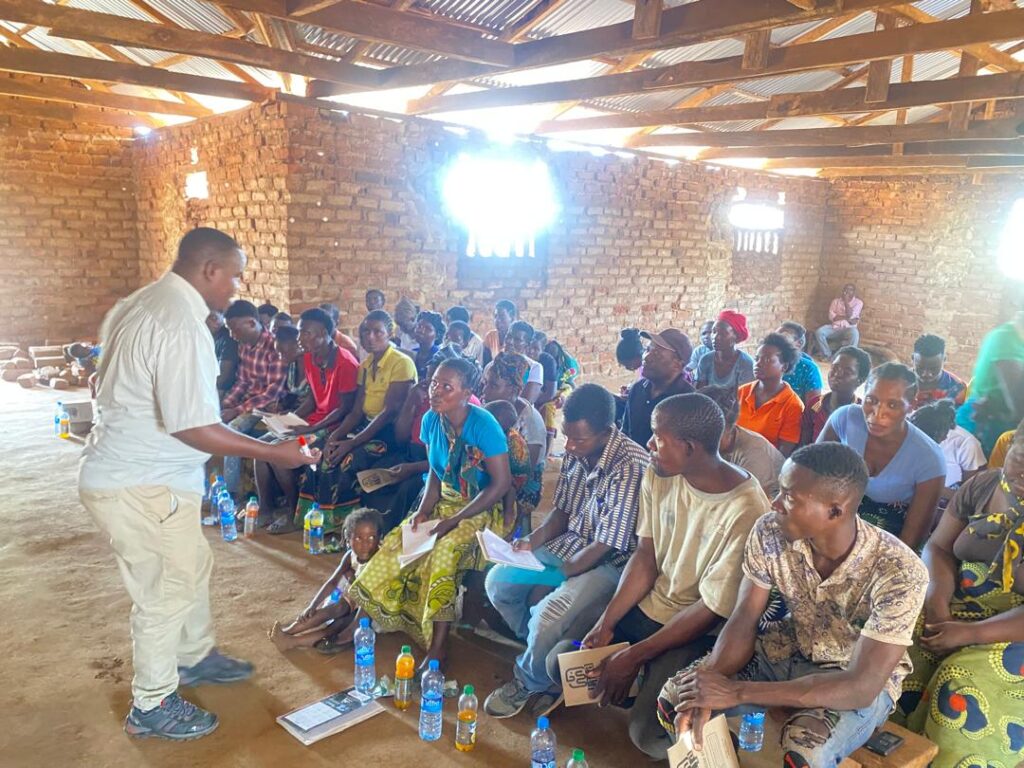
Agroecology training farmers at Kamono camp
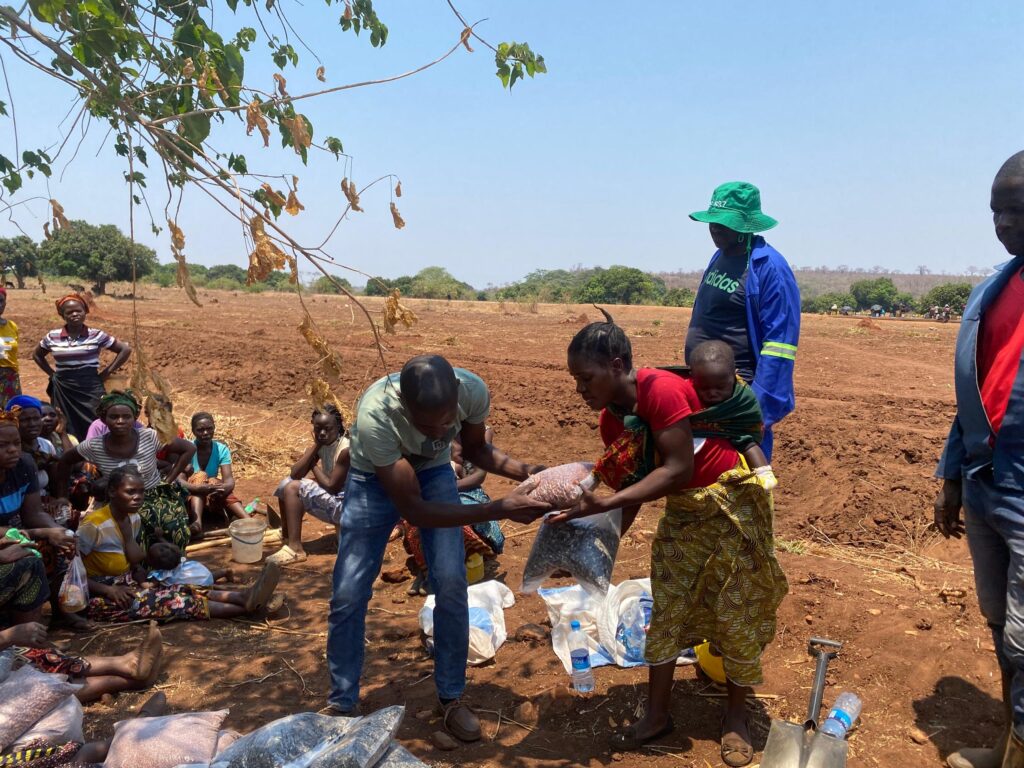
Local seed distribution to farmers
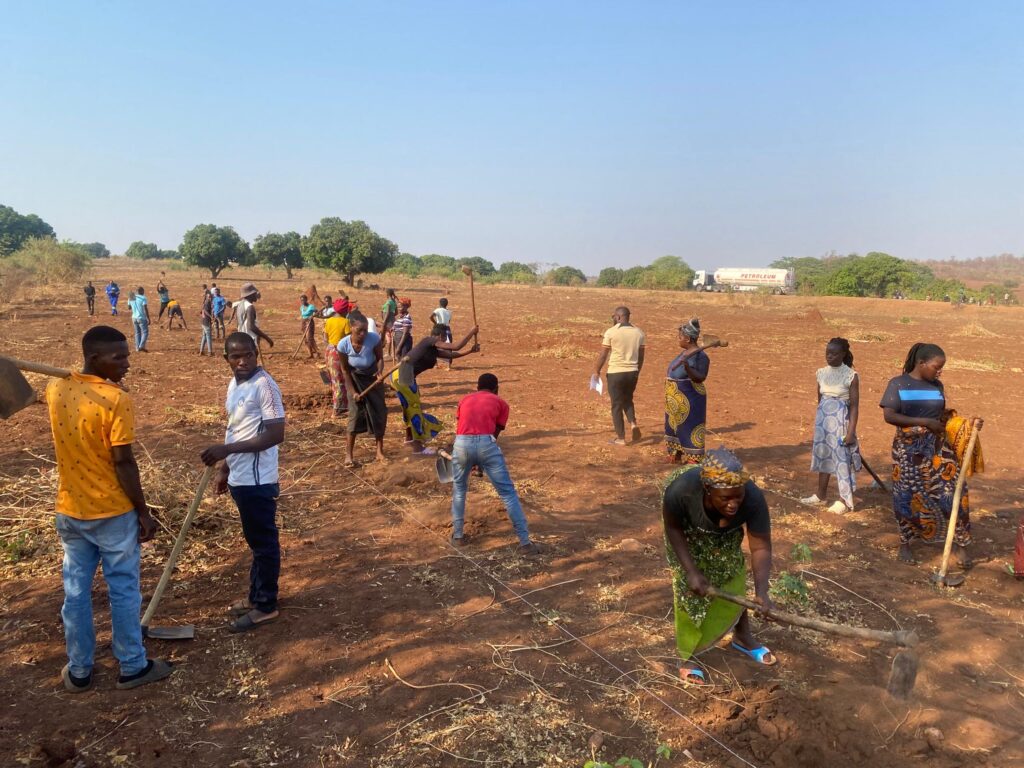
Making of demonstration plots
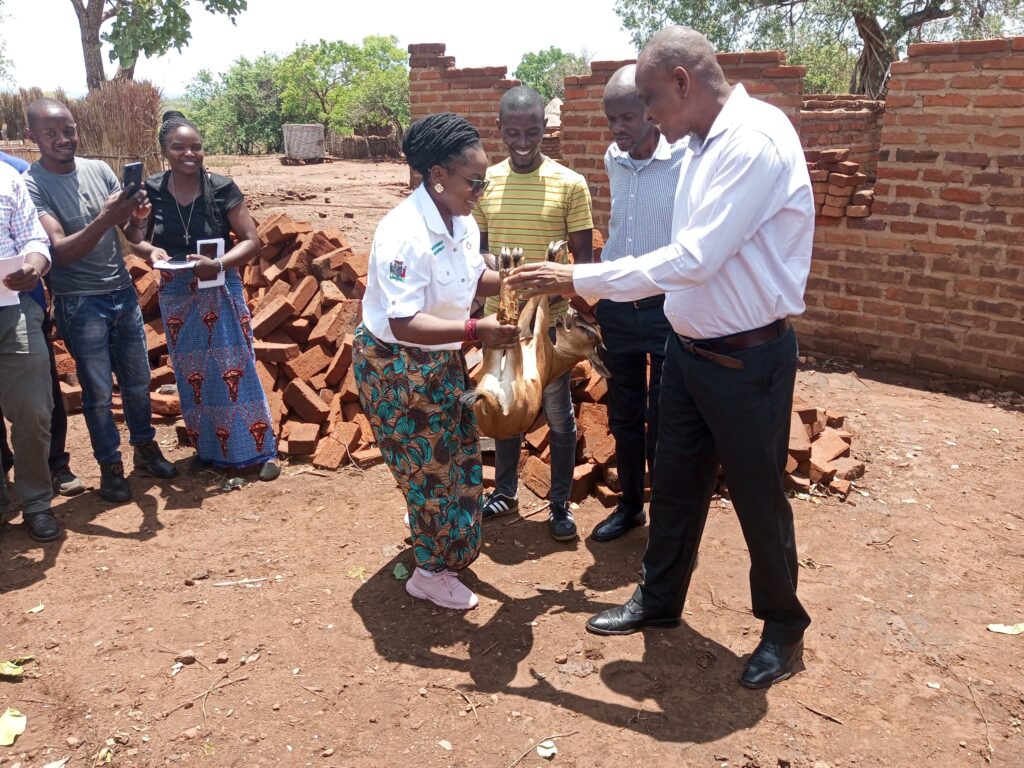
Goat distribution to farmers
Community support at Kasusu Camp, Petauke District

Post-harbest handling training of farmers

Goat house preparation
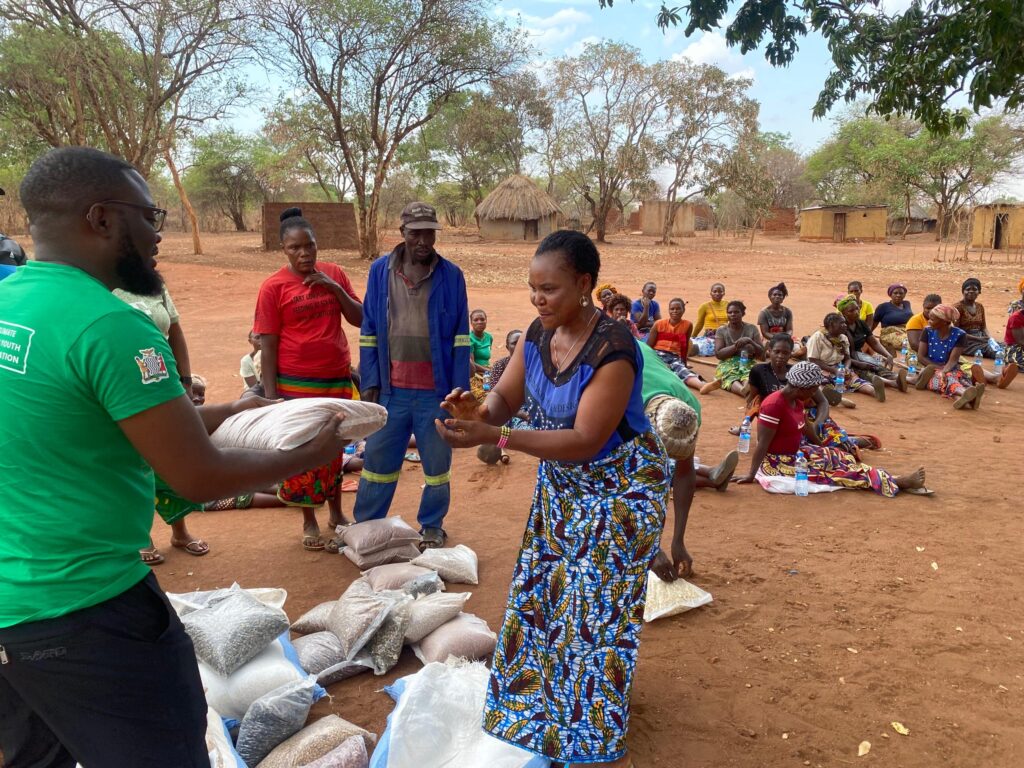
Local seed distribution
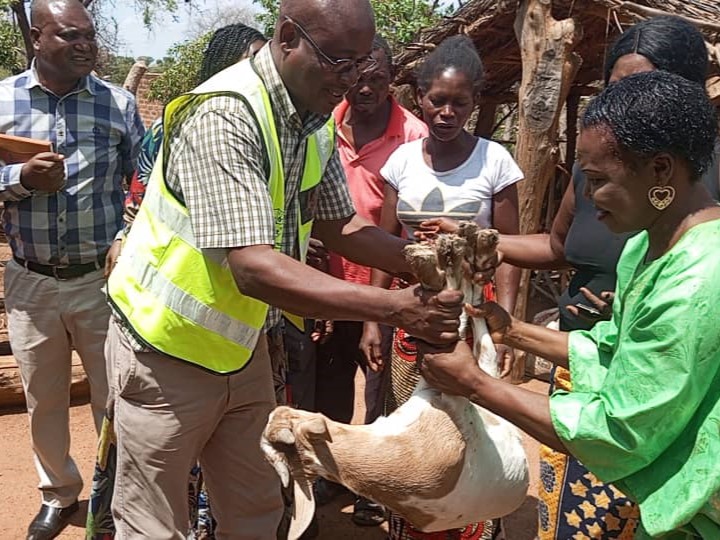
Goat distribution
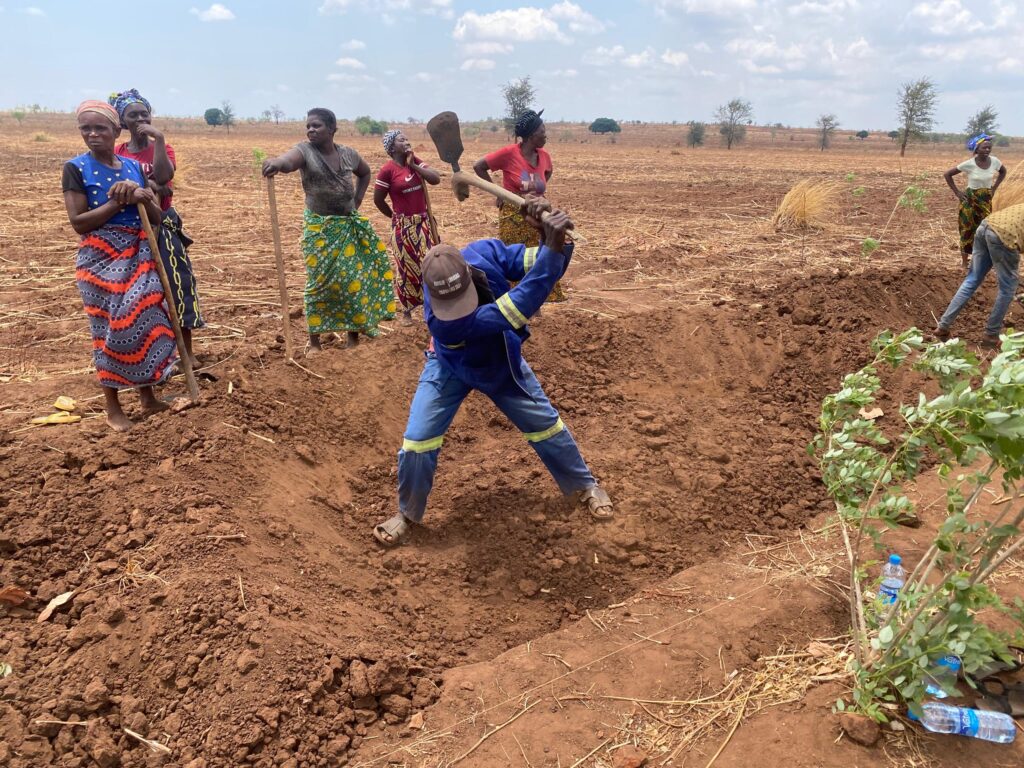
Making half-moon demo plots
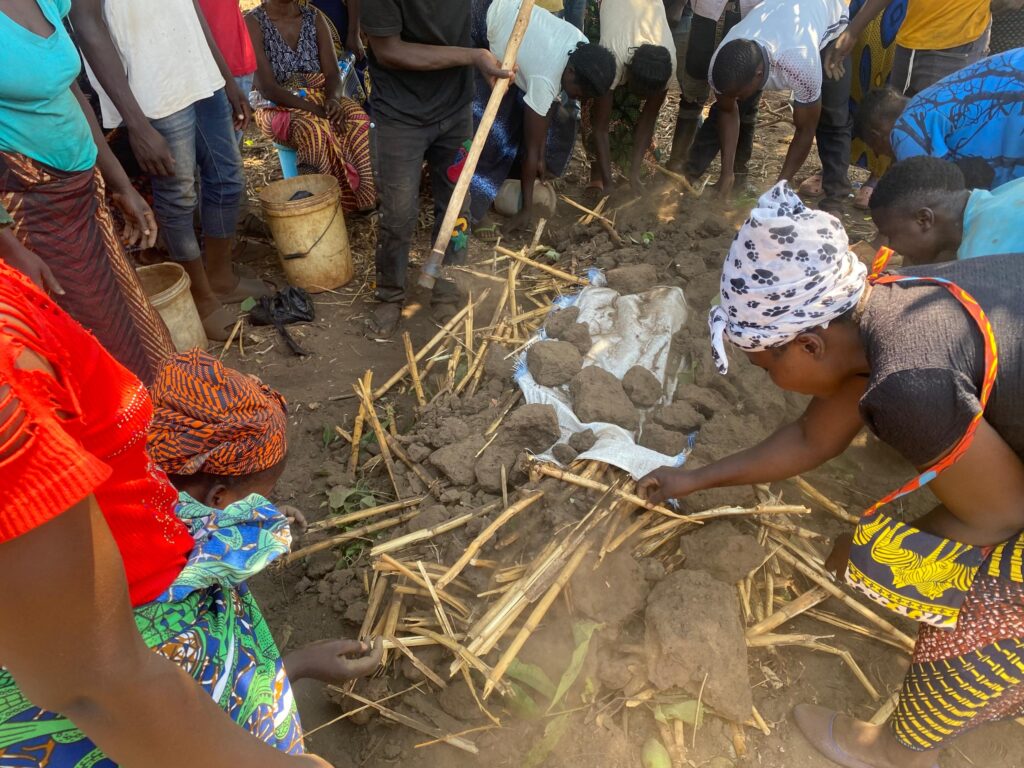
Making of the compost heap
